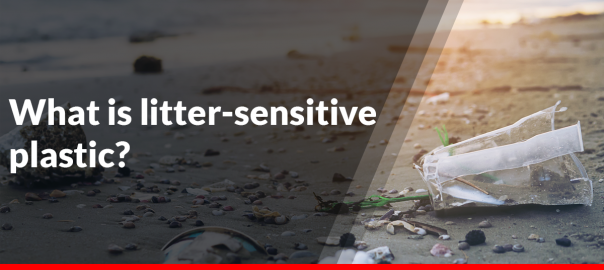Litter-sensitive plastic is plastic packaging that is more likely to end up on the streets or in nature than other types of plastic packaging. This due to the fact that these types of plastic packaging are often opened or used outside our homes. These packaging can for example be:
- Plastic bottles
- Candy packaging
- Fast food packaging
- Garbage bags
- Etc.
There are also plastics that are less likely to end up in nature. These are plastics that are generally used indoors. Because people are indoors when tusing these types op plastic, it is usually dumped in the garbage. Theese packaging can for example be:
- Bread bags
- Detergent packaging
- Mailing bags
- Etc.
Litter is one of the biggest downsides of plastic packaging. Litter costs hundreds of millions of euros anually to clean up, it attracts vermin and it can pollute the soil. Therefor it is bad for people, animals and nature. When litter ends up in the ocean, sea creatures can eat it or get entangled in it. Mussels, shrinp or other sea creatures store it in their bodies which can lead to the plastic ending up in our food chain.
It is estimated that annually 50 million kilos of litter ends up on the streets or in nature. When this litter reaches the sea or rivers trough, for example, the wind, it can contribute to the so-called “plastic soup”.
Litter hardly decays. A piece of paper wrapped around candy takes at least 20 years to decay, the same candy packaging made from plastic takes at least a 100 years, and an aluminium soda can hardly decays at all. Stopping litter, and therfore litter-sensitive plastics, is of great importance to the welfare of people, animals and nature.
Contact
Do you have any questions about litter-sensitive plastic as a result of this article? Please contact one of our product specialists, by using the contact form below. You will receive a response as soon as possible.

